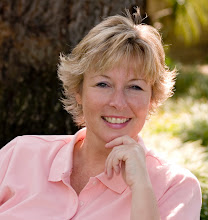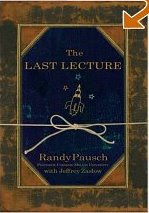
This is what a young resident told me the other day after I finished frying the synapses of my ER bud, Mark. Mark has been a happier camper since I started giving him a weekly Reiki treatment, and the resident was puzzled as to why. He simply couldn’t wrap his brain around the idea of energy treatments via my hands would send his formerly high octane boss into Nirvana.
He fell into the same trap that all good scientists do; he wanted to disseminate Reiki in order to understand its scientific properties, like one would do with a medicine. Problem is, there is little about Reiki that will satisfy our current definition of science. I tried equating Reiki to love – you can’t disseminate love either and, while there are some who question its existence, most of us accept it as part of our DNA. The resident was having none of it.
We were at a standstill until it hit me; he knows zip about the foundations of complementary alternative medicine principals, so it’s impossible for him to process the viability of Reiki. It’s like love. Until you’ve flipped both sides of the coin and have been in love, it’s impossible to make any judgments about it one way or another. Hampered by the lack of fundamental understanding, this resident is listening to a foreign language.
The way I see it, this resident is representative of the dichotomy currently taking place in medicine. Because many scientists don’t understand








9 comments:
You've hit upon one of the key features I was after in my book! By showing all of the complementary and alternative therapies it's possible to see the foundations and common threads that weave through different therapies. Have you heard about UnBreak Your Health yet? It's current featured in Well Being Journal magazine.
Sorry--that's not what was supposed to post. This is:
I am a Reiki master who frequently collaborates in medical settings, training physicians and medical students to practice Reiki, creating Reiki programs in New York City hospitals, publishing papers in peer-reviewed medical journals, and participating in research. Not knowing exactly how Reiki works does not have to be an impediment. In fact, when asked about mechanism of action, I say straight out, "Science does not yet know how Reiki works." Then I add, "There is increasing data, however, that show how the body responds to Reiki treatment." And then I cite the accumulating research data. Medical papers are available on my website www.ReikiInMedicine.org, and my book REIKI: A Comprehensive Guide (Tarcher/Penguin) has several chapters detailing how Reiki is already being used in conventional medicine (including prestigious hospitals such as Memorial Sloan Kettering Cancer Center, NY Presbyterian/Columbia, M D Anderson Cancer Center, and Dana Farber Cancer Center), reviewing the research, and addressing how Reiki fits in the scientific medical paradigm.
Lynn, I have to agree with Pamela on this one.
Years ago nobody knew how aspirin worked but it was still able to be shown that it had benefit. In contrast, blood letting was thought to wok be releasing evil humors but was found not to be effective.
My point is that not knowing how something works does not mean it can't be tested and proven to have a benefit.
Many examples exist in Medicine in which the mechanism of action of a treatment or drug is not known until after it has been shown to have a benefit.
TGIF!
Stay away from CAM. CAM doesn't get very far with docs. I also highly recommend this!!!! There needs to be a separation of IM from CAM!
Pamela, thank you so much for your comments. I’m honored. The whole CAM/IM separation is, admittedly, unfamiliar to me. I always thought it was the same ball of wax because both are non-science-based modalities that are complementary to medicine and can be integrated quite easily into medical practice. But I’ve learned
there really is a difference. Problem is, there is also a lot of confusion, and many docs don’t know the difference either. I’m anxious to hear more about why CAM should be avoided, especially when we see how it’s the foundation for NCCAM. I’m truly confused. I think.
Not knowing exactly how Reiki works does not have to be an impediment.
You’re preaching the choir here, and there are some docs who are happy to accept my explanations, which mirror yours. However, this whole “not knowing” is the primary argument I hear from the many others I talk to. They insist on scientific proof that Reiki is a viable means of healing. This post will give you a general idea of my encounters with the medical field. That’s why I am of the opinion that until doctors are willing to learn a new language (metaphorically speaking) about the various alternative healing options and how they work, it’s going to be an uphill battle toward their acceptance. On the other hand, I’ve considered that I just happen to meet a lot more cranky docs than the average bear.
Mark’s tails said:
My point is that not knowing how something works does not mean it can't be tested and proven to have a benefit.
I’m with you, Mark. My problem is that the docs I talk to aren’t satisfied with this. They want to disseminate Reiki down to its core – something that’s impossible to do. I’m not a medical person and they know I’m unable to discuss this on the same scientific level. They begin talking about enzymes and cell structure, and my eyes glaze over. Do they do this to intimidate me? Probably. How do I know? Because they refuse to look at my casual data that I collected while writing my book. They’ve already decided they don’t like Reiki, yet they know nothing of its benefits. It’s like saying you know all about love when you’ve never had a girlfriend. That’s why I love your comments. You have an open mind and are willing to discuss, not deride.
Lynn,
Is it possible to delete my first post or am I doomed to be embarrassed for cyber-perpetuity? It REALLY was a mistake that loaded a piece of a not unrelated email, and was speaking to the importance of drawing the distinction between CAM and IM when addressing the medical establishment.
In my experience, physicians are content with the paltry body of Reiki evidence if it is presented modestly and credibly, without making claims, in the context that NCCAM currently has 5 Reiki studies, and that the consensus is that Reiki does not harm--as long as patients are being responsible about whatever medical care they need. The combination of emerging scientific evidence, lack of known medical contraindications, and anecdotal evidence (such as doctors experiencing Reiki or seeing a nurse calm a distressed patient quickly with Reiki treatment) are fueling the rapid integration of Reiki into a wide range of conventional health care environments. When I train Reiki practitioners to collaborate in medicine, I encourage them to keep it simple, give Reiki samples to start the conversation whenever possible. Rather than explaining Reiki, start with a few minutes of Reiki hands placed at the crown of someone's head and then elicit their experience. Almost everyone notices they are more relaxed, and the conversation can proceed carefully from there. Allowing Reiki to speak for itself can open the door.
"That’s why I love your comments. You have an open mind and are willing to discuss, not deride."
That is because both you and Pamela believe in and stress the definition of 'COMPLIMENTARY to medicine' rather than 'alternative'.
believe in and stress the definition of 'COMPLIMENTARY to medicine' rather than 'alternative'.
Even though I made it very clear in my book that this was exactly what my premise was, I added a note from the author that goes into further detail about it. I did this because a reviewer read an ARC (advanced reader copy) of my book and was so excited about other means of healing that she was fixing to leave her doctor. That scared the crap out of me, and I reminded her that I never advocate leaving medical care - that would be just plain dumb. Just to be sure, I added the extra note at the end. Geez.
Complementary/complimentary--one letter makes a world of difference...
Reiki is complementary to conventional medicine in that it is supportive and not disruptive of medical protocols, but as a working Reiki master, I am looking for the day when Reiki will not be complimentary and Reiki practitioners will be compensated as other allied health care practitioners are. After all, we won't have integrative medicine until we integrate the money.
Post a Comment